Latest News
24 January 2022
TU Delft's Reactor Institute takes another step forward as a testing ground for innovation
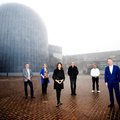
The Reactor Institute Delft (RID) continuously invests in better measuring methods and techniques in order to facilitate pioneering research. We have accelerated this with the OYSTER (Optimised Yield - for Science, Technology & Education - of Radiation) programme.
21 January 2022
TU Delft supercomputer officially opened
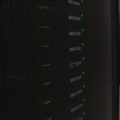
As of 2022, TU Delft will have its own supercomputer: DelftBlue. The official opening of this DelftBlue supercomputer was on Thursday, January 20th. Researchers, students and education can use the computing power of the Delft High Performance Computing Centre (DHPC) to solve and calculate complex societal issues.
20 January 2022
Delft students present new sustainable hydrogen-powered racing car

TU Delft students presented their latest hydrogen-powered racing car on the Scheveningen Pier last Tuesday. With its top speed of 300 kilometers per hour, the 'Forze IX' is expected to compete with Porsches and Lamborghinis on the Zandvoort circuit and definitively break the spell for hydrogen in the automotive industry.
17 January 2022
Effectiveness of 2G and 3G has declined

At the request of the Dutch Ministry of Health, Welfare and Sport, researchers from TU Delft, UMC Utrecht and Populytics investigated the extent to which the various types of COVID certificates (coronatoegangsbewijs, CTB) can help to prevent the spread of COVID-19 in society. The 3G (vaccinated, recovered, tested) and 2G (vaccinated, recovered) rules are currently a lot less effective in curbing the spread of the virus than they were two months ago. A 1G policy (only people who have recently tested negative are given access) is much more effective. But, even if a 1G policy were to be introduced today, the reproduction number would not drop below 1.0.
14 January 2022
TU Delft anniversary dedicated to energy transition
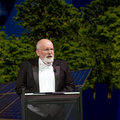
On Friday 14 January, TU Delft celebrated its 180th Dies Natalis, or birthday. The university has chosen ‘speeding up the energy transition’ as theme for the anniversary celebrations, which will continue over 180 days after Friday’s official Dies Natalis ceremony.
13 January 2022
SpaceX launches TU Delft mini-satellite: will it survive in space?
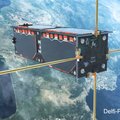
During the Transporter-3 satellite launch by SpaceX on 13 January from Cape Canaveral a small satellite from Delft will also travel into space. The DelfiPQ is one of the smallest satellites in the world.
11 January 2022
ERC Starting Grant for four TU Delft researchers
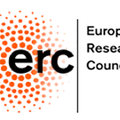
The European Research Council (ERC) has announced the ERC Starting Grants for young researchers. Four of them are scientists from TU Delft. This European grant of €1.5 million for a five-year programme is intended to enable individual scientists to build their own teams and conduct groundbreaking research.
10 January 2022
TU Delft builds decarbonised energy system for the built environment
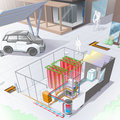
The energy transition will be felt most keenly in residential areas, where there are major challenges. . At The Green Village – the field lab for sustainable innovation on the TU Delft Campus – a unique project to accelerate the energy transition in the built environment will start on Friday 14 January: the 24/7 Energy Lab.
07 January 2022
Dies Natalis TU Delft

On 8 January, 2022, TU Delft celebrates its 180th anniversary. We will mark this on 14 January during our Dies Natalis ceremony, when we will also kick-off of our anniversary year. From that day on, everyone can participate in a 180-day anniversary programme devoted to the energy transition.
21 December 2021
Impact study shows North/South metro line to be the ‘backbone’ of Amsterdam’s public transport network

The four-year study conducted by TU Delft, AMS Institute and others into the transport-related, spatial and economic effects of the North/South metro line is now complete and was recently presented to Amsterdam’s regional and City councils.
